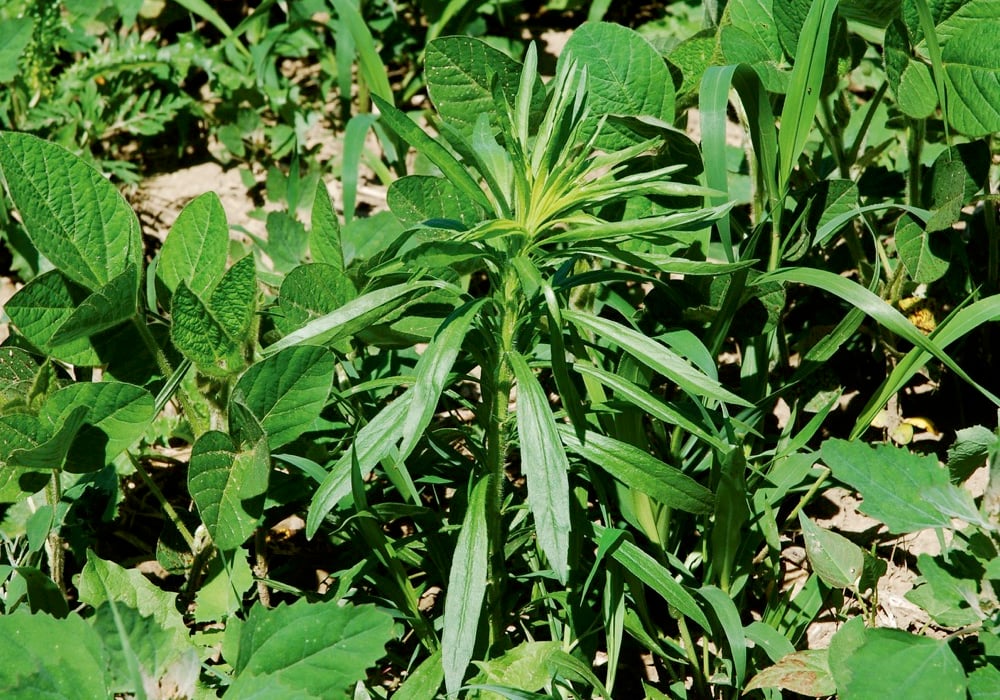May-June sees low pest pressure in Southern Ontario

A mild winter increased concerns about increased pest pressures for spring and early summer, but according to several agronomists, harmful insects have not been a widespread issue.
Read Also


Agreement reached at Cargill Dunlop Guelph
After a 41-day strike, workers at the Cargill Dunlop beef processing plant in Guelph will return to work Monday. 960…
Aphids and spider mites – maybe?
In the southwest, pest pressure is minimal or at least not above what is normally expected.
“The thing about a mild winter is, if it’s mild in the south, things overwinter closer to the great lakes … They get here sooner. Black cutworm and army worm were detected sooner,” says Dale Cowan, agronomy strategy manager and senior agronomist with Agris Cooperative.
Wire worms were cited as a challenge in fields with excessive cover, from cover crops and weeds, but army worm did not appear to be a major problem. Cereal leaf beetle has similarly not been identified as a widespread problem this spring.
“It’s all manageable. These things show up every year to varying degrees, and so far, they’re showing up where we expected them to show up,” says Cowan. The focus now will shift to monitoring aphid and spider mite populations.
Pest pressure has been a non-issue in the St. Mary’s area, according to Russell Barker, agronomist and Pioneer Hybrid sales representative.
“We had a little blast of alfalfa weevil, some slugs too, but they don’t like heat so they’re gone. There’s always a possibility of aphids, and we usually don’t get much cutworm. Spider mites maybe, but things will have to get blisteringly dry before that’s an issue.
“Generally, we tend to not have a lot of insect issues on a regular basis. They just pop up from time to time,” Barker says.
“We always wonder about wire worm in spring. I believe in other areas they’ve been a bit of a pain, but bugs aren’t really high on our list … You can always find stuff. They’re always around but they tend not to get to threshold.”
In some parts of Northern Ontario, including Temiskaming, Algoma, and areas near Thunder Bay, they had “cutworms like crazy,” says Tracey Baute, field crop entomologist for the province.
This included black, dingy, and variegated varieties of the pest. The latter two were of particular concern in barley and canola. Some fields required insecticide applications and replanting, but most growers managed to get ahead of it.
“There was quite a broad region…areas where we are not able to monitor as easily.”
It’s the weeds
Tyler Sabelli, agronomic solutions advisor with Bayer Crop Science in Essex County, also says pest pressures have not been high, although slugs and wire worms were noted in residue-heavy fields.
Weeds, on the other hand, are a problem.
“Beating up some of these big weeds has become a challenge this spring,” Sabelli says.
“I’m an ice fisherman. Looking back to February, we couldn’t ice fish anywhere. We had a warm winter and that meant fleabane and things were growing back in March. Some people never got burndowns on until two weeks ago [mid-June].
“Winter annuals like fleabane got to be way too big for labelled rates. Some growers had to shift plans two or three times.”
Some reached for tillage as a solution. However, Sabelli says the size of root systems in some weed species means tillage didn’t always work.
Weeds were less of an issue in the environs of southern Perth County. Barker says growers in the area “dodged the storms” that seemed to plague other parts of the province in May and June, providing an earlier or more standard window for planting and herbicide applications.
“We have been very fortunate. Crops look pretty reasonable up here … It’s just luck.”
Varroa mite pressure
In Renfrew County, agronomist, farmer and beekeeper Jennifer Doleman says there have been “hints of army worm” scattered in her area’s winter wheat acres. However, the wheat crop has matured to a point where she does not anticipate it will have a significant impact.
Varroa mite is the pest of most concern. It had an early-season start thanks to mild conditions throughout much of Ontario over winter and early spring.
Beekeepers should anticipate a tougher winter season to come, as the varroa mite has had more time to damage hives in 2024, says Doleman. It also means beekeepers must manage hives for varroa mite or they could see greater overwinter losses.
Source: Farmtario.com

